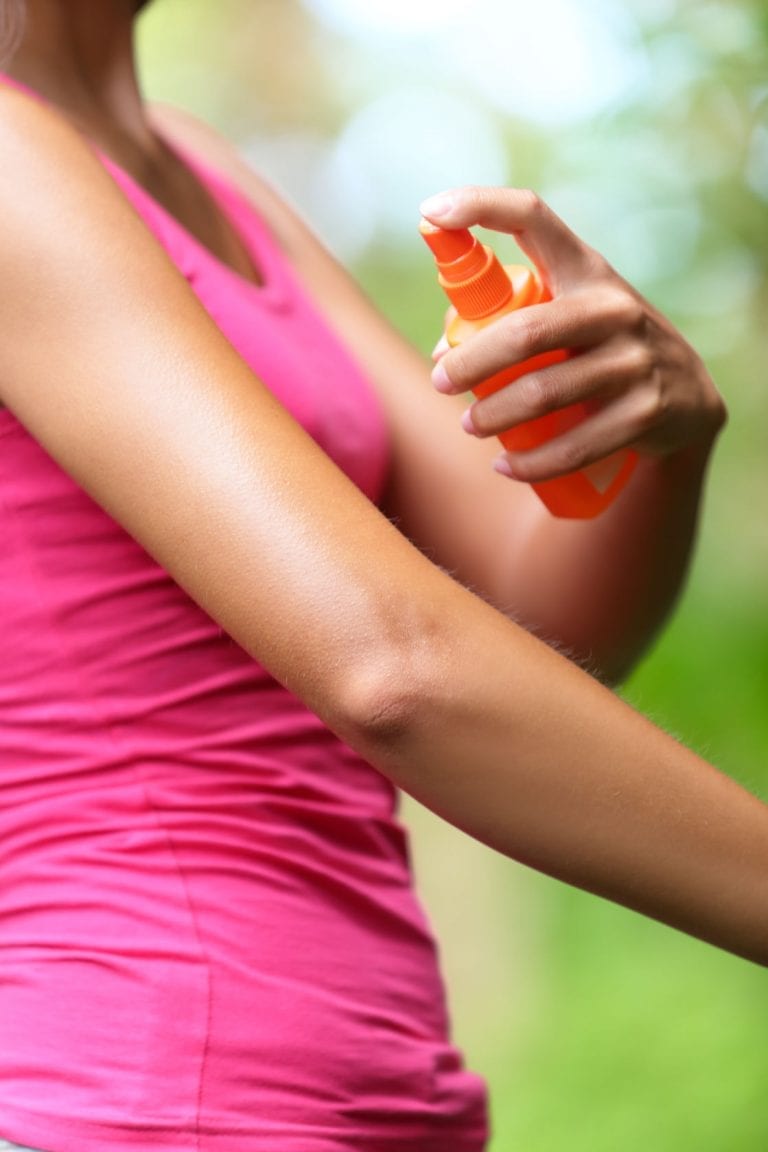While the headlines may have you concerned about Zika virus, did you know you can also contract other diseases including West Nile virus, malaria, dengue fever, chikungunya and Eastern equine encephalitis from mosquito bites?
Avoiding mosquito bites is best prevented through insect repellents, experts say. The most effective among these products for the longest period of time typically contain either DEET, icaridin or lemon-eucalyptus oil containing p-menthane-3,8-diol, say researchers who compared the effectiveness of popular products last fall and published their work in the Journal of Insect Science.
You probably already know it’s best to avoid the outdoors at dawn and dusk, when mosquitos are most active. But did you know that the Aedes mosquito that carries Zika virus is active throughout the day. This makes wearing insect repellant and light, layered and loose clothing a must anytime it’s mosquito season.
Home and health protection
Minimize your exposure to mosquitos by keeping them away from your home. Mosquitos lay eggs in standing water, so change the water in your pots and birdbaths at least weekly, and empty any other containers of standing water—such as your little ones’ swimming pool—at least weekly as well.
Use sunscreen daily but skip products that include insect repellant—add that only after you’ve applied your sunscreen. Shower or bathe to remove insect repellant as soon as you’re done being outdoors for the day.
Mosquito Bite Warning Signs
Most mosquito bites emerge as the common puffy, reddish bump with a raised fluid-filled center that itches like crazy, even more so if you scratch it—so don’t. Scratching a bite can lead to infection. Seek health care if mosquitos have bitten you and you’re having any of the following symptoms:
- Increasing swelling and redness spread around the bite
- Red streaks near the bite
- Fever of 100 degrees or more
- Headache
- Feelings of flu or tiredness
- Hives
Treating Mosquito Bites
Most bites will clear on their own in time, but if the symptoms are too bothersome, try:
- Over-the-counter antihistamine, like Benadryl®
- Anti-itch lotion or ointment, or over-the-counter hydrocortisone cream
- Homemade paste of baking soda and water
- A cold compress or ice pack applied for a few minutes
Mosquito Safety Do’s and Don’ts
| DO: | Don’t: |
| Use insect repellant—as directed on packaging; use permethrin only on your clothing, not your skin | Use DEET on an infant age 2 months or younger |
| Avoid the outdoors at dawn and dusk | Use oil of lemon eucalyptus on children ages 3 and younger |
| Wear loose, light-colored protective clothing | Let children get insect repellant on their hands and faces |
| Use mosquito netting over car seats, strollers | Apply insect repellant under your clothing, or on wounds or cuts in your skin |
| Repair all screens so they’re bug tight | Leave standing water around your house—clear the gutters, downspouts, pots and birdbaths at least weekly |
Source: CDC, Mayo Clinic
See also: Vaccinate for a Healthy Life





Comments are closed.